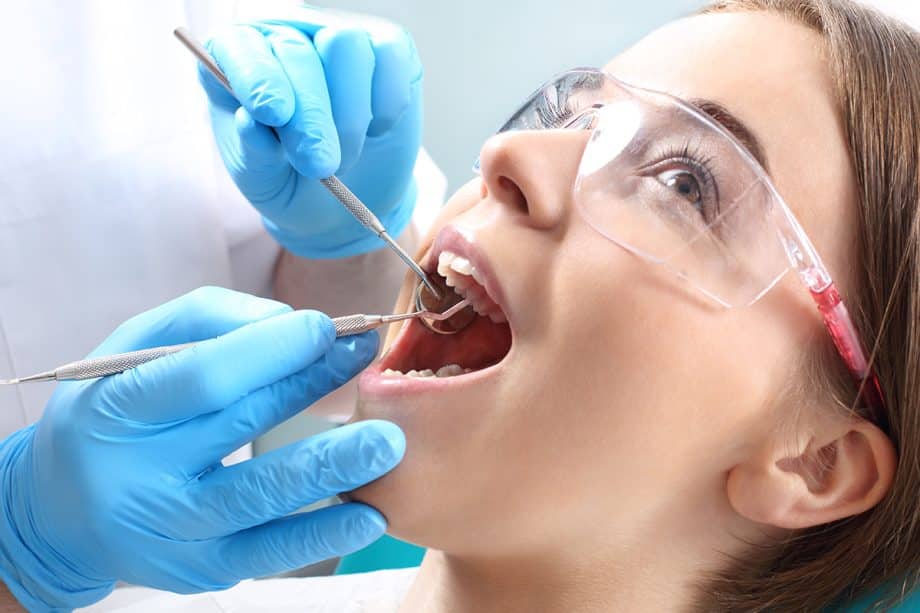A toothache under a dental crown can indicate a serious problem - a cracked tooth hidden below the restored surface. Cracking a tooth under a crown is not uncommon, as dental crowns do not prevent cracks from developing. However, a hidden cracked tooth needs prompt care to avoid further damage.
Understanding the condition helps you seek appropriate dental care when you experience symptoms like temperature sensitivity or discomfort while chewing. With the right treatment, a cracked tooth under a crown can often be repaired and saved.
Causes of a Cracked Tooth Beneath a Dental Crown
Trauma or injury - Accidents, falls, or impacts to the mouth can crack the underlying tooth, even with a protective crown in place. The force of the trauma can damage the tooth structure beneath the crown's surface.
Biting into hard foods - Hard candies, ice cubes, or other difficult foods can exert too much pressure on the crowned tooth, leading to cracks in the tooth below. Dental crowns are strong but not impervious to cracking from excessive bite forces.
Untreated tooth decay - If decay or cavities weaken the natural tooth before crown placement, those vulnerabilities remain and worsen over time, increasing the risk of eventually cracking the tooth under the crown.
Wear and tear over time - Years of chewing, clenching, or grinding can gradually weaken the integrity of the natural tooth under the crown. This constant pressure makes the tooth more prone to cracking from regular use.
Bruxism habits - Clenching and grinding, especially while sleeping, generates high forces against teeth over time. This can stress and crack the tooth structure under dental crowns.
While crowns protect and strengthen teeth, they cannot completely prevent underlying cracks from trauma, disease, or chronic pressures placed on the teeth. Seeing a dentist promptly for tooth pain under a crown is essential.
Signs and Symptoms of a Cracked Tooth
Sharp pain when chewing or biting - As the crack allows pressure to reach the inner tooth layers, it can cause sudden, sharp discomfort when eating.
Temperature sensitivity - Hot or cold foods and drinks may provoke a quick, sharp pain in the area, indicating a crack.
Discomfort biting down - A cracked tooth may cause a feeling of the tooth shifting or loosening when biting.
Localized pain around the crown - You may notice swelling, tenderness, or throbbing pain around the crowned tooth's gum line.
Changes in the crown's appearance - Look for discoloration, cracks, gaps between the crown and tooth, or chipping on the crown's surface.
Tooth feels loose - Due to a crack, the tooth may feel unstable or wiggly when you touch or bite down on it.
Lingering pain after stimulus removal - You may have continued pain for a while after hot, cold, or biting pressure is taken away.
If you notice any of these issues, schedule an urgent dental appointment. Prompt examination and treatment are key to saving the tooth and preventing further damage from the hidden cracked tooth under the crown.
Treatment Options for a Cracked Tooth
Crown replacement - The dentist may remove the damaged crown, inspect the tooth, and replace the crown to restore function. This can fix minor cracks.
Dental bonding - Applying a tooth-colored resin to the cracked area can strengthen the tooth and improve aesthetics for small cracks.
Root canal - If the crack extends into the root or pulp, a root canal is needed to remove infected material and save the tooth. A new crown is placed afterward.
Extraction - For severe cracks or extensive tooth damage, extraction may be necessary. Your dentist will discuss tooth replacement choices like dental implants, bridges, or dentures.
Crack stabilization - For cracks that have not progressed too far, stabilizing the crack with bonded composites may help. This prevents it from worsening.
Tooth splinting - Splinting the cracked tooth to neighboring teeth provides stability and prevents movement that can worsen cracks.
The right treatment is based on crack severity, tooth integrity, and overall dental health. Seeing your dentist promptly allows assessment and determination of proper care to repair the tooth and restore your smile.
Dental Crowns in Guelph
Discovering you have a painful cracked tooth lurking under a dental crown can be worrisome. However, this frustrating situation can often be resolved with prompt care to protect your oral health. Being aware of the signs, causes, and treatment options empowers you to make the right decisions.
The key takeaways are to see your dentist at the first sign of symptoms and to understand the various management solutions available. Crown replacement, bonding, root canals, tooth extractions, or stabilization procedures are all possible treatments, depending on the damage. With your dentist's help, even severe cracks can often be repaired and the tooth saved through proper intervention.
Bisson Dentistry provides dental crowns in Guelph, Ontario. To learn more or to schedule an appointment, contact us at 519-821-3561.

